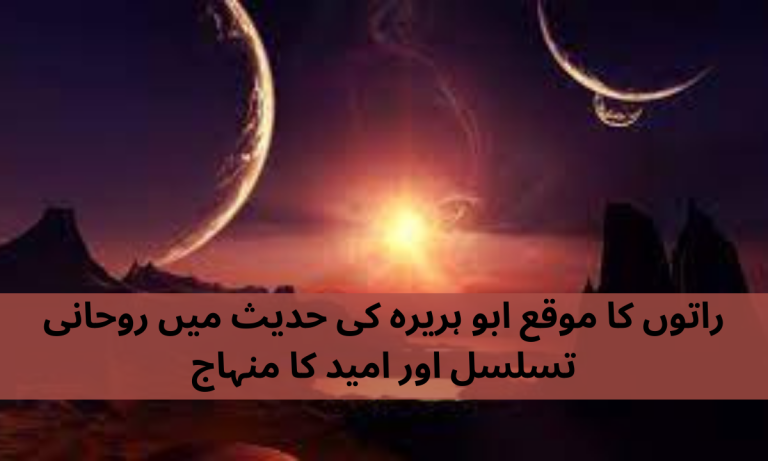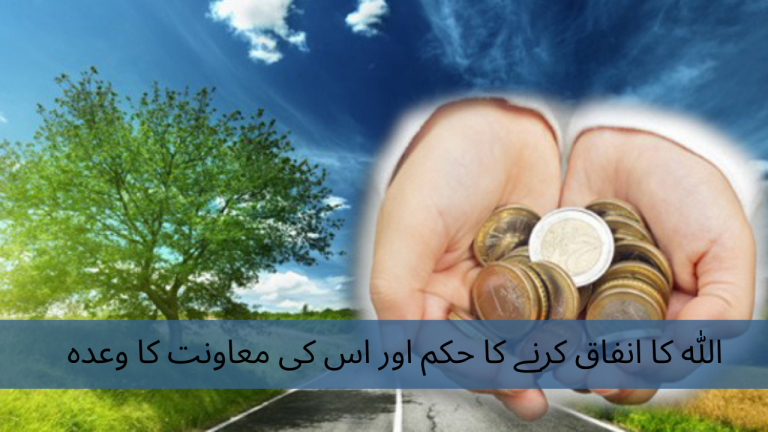Roza Allah Ka Hay Or Allah Hi Us Ka Ajar Dai Ga

Roza Allah Ka Hay Or Allah Hi Us Ka Ajar Dai Ga
رواه البخاري (وكذلك مسلم ومالك والترمذي النسائي وابن ماجه)
About This Hadees in Araibi ,Urdu And English
This Hadith, attributed to Abu Huraira (may Allah be pleased with him), is a saying of the Prophet Muhammad (peace be upon him) and is commonly narrated in Islamic traditions. Here’s the translation of this Hadith in Arabic, Urdu, English, and Pashto:
In Arabic (العربية)
عَنْ أَبِي هُرَيْرَةَ رَضِيَ اللَّهُ عَنْهُ، عَنْ النَّبِيِّ صَلَّى اللَّهُ عَلَيْهِ وَسَلَّمَ قَالَ: “يَقُولُ اللَّهُ عَزَّ وَجَلَّ: الصَّوْمُ لِي، وَأَنَا أَجْزِي بِهِ، يَدَعُ شَهْوَتَهُ وَأَكْلَهُ وَشُرْبَهُ مِنْ أَجْلِي، وَالصَّوْمُ جُنَّةٌ، وَلِلصَّائِمِ فَرْحَتَانِ: فَرْحَةٌ حِينَ يُفْطِرُ، وَفَرْحَةٌ حِينَ يَلْقَى رَبَّهُ، وَلَخُلُوفُ فَمِ الصَّائِمِ أَطْيَبُ عِنْدَ اللَّهِ مِنْ رِيحِ الْمِسْكِ”.
In Urdu (اردو)
حضرت ابو ہریرہ رضی اللہ عنہ سے روایت ہے کہ پیغمبرِ اکرم صلی اللہ علیہ وآلہ وسلم نے فرمایا: “اللہ عزوجل فرماتے ہیں: روزہ میرا ہے اور میں اس کا بدلہ دوں گا، جب روزہ رکھنے والا شہوتوں اور کھانے پینے سے باز رہے تو میرے لئے رکھتا ہے۔ اور روزہ جنت ہے، اور روزے دار کے لئے دو خوشیاں ہیں: ایک خوشی اس وقت ہے جب وہ افطار کرتا ہے اور دوسری خوشی وہ وقت ہے جب وہ اپنے رب کے پاس پہنچتا ہے، اور روزے دار کے منہ کی بو رواں اللہ کے لئے مسک کی خوشبو سے زیادہ پسند ہوتی ہے۔”
In English
Narrated by Abu Huraira (may Allah be pleased with him): The Prophet Muhammad (peace be upon him) said, “Allah Almighty says: ‘Fasting is for Me, and I will reward it. The one who observes fasting abstains from food and drink for My sake.
Fasting is a shield, and for the one who fasts, there are two moments of joy: a moment of joy when breaking the fast, and a moment of joy when meeting one’s Lord. The smell that comes from the mouth of the fasting person is more pleasing to Allah than the scent of musk.'”
Benefits Of This Hadees
The Hadith you mentioned carries several important benefits and lessons for Muslims:
Fasting as an Act of Worship
- This Hadith emphasizes that fasting (Sawm) is a form of worship that is solely for Allah. It reinforces the idea that acts of worship in Islam are performed with sincerity and solely for the pleasure of Allah.
Spiritual Discipline
- Fasting involves abstaining from food, drink, and other permissible desires during daylight hours. This discipline helps individuals gain control over their desires and develop self-restraint, which is essential for spiritual growth.
Rewards from Allah
- The Hadith highlights that Allah promises to reward fasting, indicating that fasting is a special act of devotion with unique blessings and rewards.
Fasting as a Shield
- It describes fasting as a “shield.” This implies that fasting serves as a means of protection against sins and negative influences. It helps individuals guard themselves against wrongdoing and develop a higher level of consciousness of Allah.
Moments of Joy
- The Hadith mentions that there are two moments of joy for those who fast: one when they break their fast and another when they meet their Lord. This underscores the spiritual delight and the ultimate reward that fasting brings to a believer.
Spiritual Fragrance
- The Hadith metaphorically compares the scent from the mouth of a fasting person to the fragrance of musk. This analogy emphasizes the spiritual purity and acceptability of a fasting person’s actions to Allah.
Encouragement for Fasting
- Overall, this Hadith serves as an encouragement for Muslims to engage in fasting with devotion and sincerity, reminding them of the spiritual and moral benefits of fasting.
Awareness of Intention
- It highlights the importance of having the right intention (niyyah) when fasting. Fasting should not be for showing off or seeking praise from others but should be solely for the sake of Allah.
Preparation for the Hereafter
- The Hadith mentions the joy of meeting one’s Lord, which reminds believers that fasting is a means of spiritual preparation for the Hereafter and the Day of Judgment.
Enhancement of Taqwa (God-Consciousness)
- Fasting is a means to develop taqwa, which is often translated as God-consciousness or piety. It reminds believers to be mindful of Allah in all aspects of life.
In summary, this Hadith underscores the significance of fasting in Islam, both as an act of worship and as a means of spiritual development. It encourages Muslims to fast sincerely, seeking Allah’s pleasure and the ultimate reward in the Hereafter while emphasizing the virtues and blessings associated with fasting.
Conclusion
The Hadith narrated by Abu Huraira underscores the profound spiritual significance of fasting in Islam. It emphasizes the sincerity of fasting solely for Allah, highlighting its role as a shield against wrongdoing and a means of self-discipline.
The Hadith also emphasizes the unique moments of joy for those who fast, both at the breaking of the fast and in the ultimate meeting with Allah. Overall, it serves as a reminder of the spiritual and moral benefits of fasting, encouraging Muslims to approach this act of worship with devotion and mindfulness, seeking Allah’s pleasure and rewards in the Hereafter.





